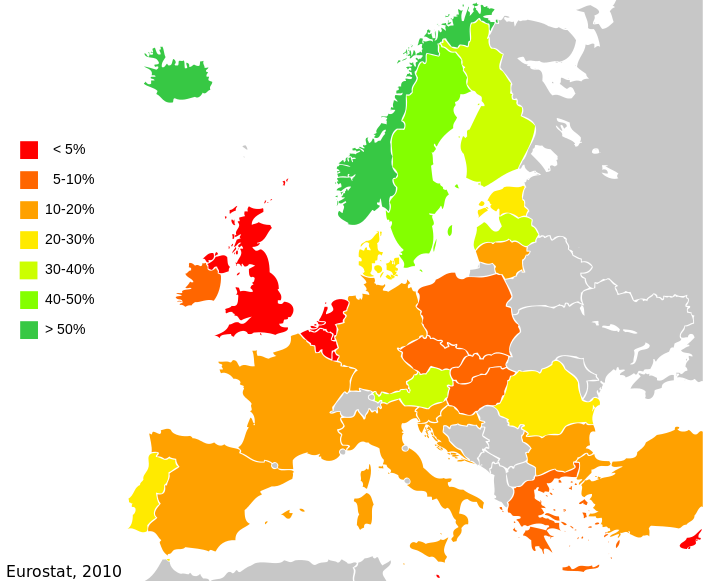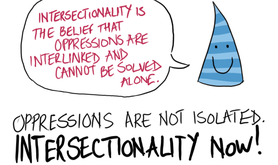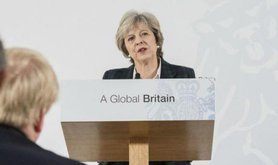
Renewable energy use across the EU
There is a trope I hear a lot at the moment: “Scotland is different”. Left to lie, on its own, with no explanation, it's a sort of petty nationalism. The idea that any one group of people is intrinsically unlike any other strikes me as a perverse way to understand humanity.
The context, usually, is political. Scotland has free education “because it's different”. Scotland hasn't privatised its NHS, “because it's different”. It's utter bunkum. The truth is that Scotland is, basically, a very normal Northern European country.
Across Northern Europe, university education is either free (in Germany and the Nordic countries) or costs only a few hundred Euros (in the Netherlands and France, for example). Most of Europe has much lower levels of income inequality than the UK. Apart from the Benelux countries and Cyprus, all of Europe's countries use more renewable energy than the UK, despite Britain having more potential than almost any of them.
In most of Europe, in fact, in most of the world, the idea that significant portions of your economy would be publicly owned is quite standard. In Northern Europe, it's not abnormal to have decent childcare provision, to work a sensible number of hours a day, and to be more productive in total as a result.
No, when people say that Scotland is different, that the social democratic aspirations of Scots are an anomaly, they are missing the point entirely. The social attitudes of Scots, and the policies of the Scottish Parliament, are pretty much standard for a European country. Scotland isn't the exception, it's the rule.
The thing that's weird isn't even England. Most English people are against privatisation, and though there is a small difference in attitudes towards social security, it's nothing that won't change over the years.
No, the thing that's an outlier is Britain. As the Radical Independence Campaign has pointed out, it's Britain that is the fourth most unequal developed country on earth, in which pay has in recent years fallen faster than in all but three EU countries, in which people work the third longest hours in Europe for the second lowest wages in the OECD despite having Europe's third highest housing costs, highest train fares and the second worst levels of fuel poverty.
It's Britain which has the least happy children in the developed world, the highest infant mortality rate in Western Europe and some of the worst child poverty in the industrialised world. It's British elderly people who are the fourth poorest pensioners in the EU. It's Britain which has the eighth biggest gender pay gap in Europe and child care costs much higher than most European countries.
It's Britain which has a wealth gap twice as wide as any other EU country, Europe's greatest regional inequality, productivity 16% behind the average for advanced economies and the worst record on industrial production of the rich world. It's Britain whose elite has a radical ideology: 40% of the total value of all privatisations in the Western world between 1980 and 1996 happened in the UK; and it's Britain's parliament which is uniquely undemocratic, with its noxious combination of first past the post and an unelected second chamber, yet holds more centralised power than almost any other legislature in the developed world. With all that, it should be no surprise that Britain has the lowest level of trust in our politicians.
Most people in the South East of England never seem to understand this. Blinded by the headlights and headlines of post imperial UK nationalism, the idea that “Britain is Great” pervades. We (I live in the South East at the moment) cling with white fisted knuckles to the notion that Britannia rules, unwilling to let go of our imperial past for fear that we might find we are just another European country. It's a myth which works much more in England, and which helps explain differences in the tendancy to believe immigrant scapegoating North and South of the border "if Britain is uniquely great" people infer "it can't be the system that's to blame, it must be outsiders".
But the truth is that this is a very sick country indeed. We are investing a net figure of nothing in our future economy, and instead just about keep our head above water by flogging off our assets at a rate which would astonish almost any other country and re-inflating speculative bubbles which suck any wealth we do create into an unproductive black hole London housing market which eats wealth out of the rest of the country, hoovering any investment away from anything productive and then complaining when it's asked to redistribute crumbs from its table.
A metropolis once at the centre of the biggest empire in human history and now at the centre of a global revolution of money-men over making things, of the wealthy over the rest is disguised by a blanket of post-imperial false confidence. Post-imperial Britain is a very strange, very damaged place. And before the people of these islands, the English in particular, can move on, and find a new place in the world, they need someone to finally point out that not only is this former emperor naked, not only does he no longer rule the waves, but his failure to grapple sensibly with either of these facts has led to some pretty unhealthy habits. Telling a difficult truth is what friends are for. In part, that's what Scotland's referendum will be about.
But for most Scots, it'll be about their families and their communities. And so for them, it's important to understand this: when people say that Scotland could do better, this isn't about some nationalist belief that the talents or the solidaristic instincts of the Scots are unique. In order to be a significantly nicer place to live, all that Scotland needs is to be normal. Compared to being in broken Britain, living in a bog-standard, average Western country may seem like an impossible, utopian fairy-land, to which only naïve children conned by lying politicians would aspire. But for most of the Western world, the sort of Scotland that the SNP talk about, that most yes campaigners say we can expect, isn't exceptional, it's not even better than average. I am a radical. I hope we can achieve much more. But the “cloud cuckoo land” aspiration of the Scottish Government is to be an average, run of the mill, bog-standard European country. Compared to where we are now, that would be a great start.
Lots of the statistics cited here come from James Foley and Pete Ramand's new book which you can buy here.
You can now buy Adam Ramsay's e-book, 42 Reasons to Support Scottish Independence for £1.99 here.
Read more
Get our weekly email





Comments
We encourage anyone to comment, please consult the oD commenting guidelines if you have any questions.